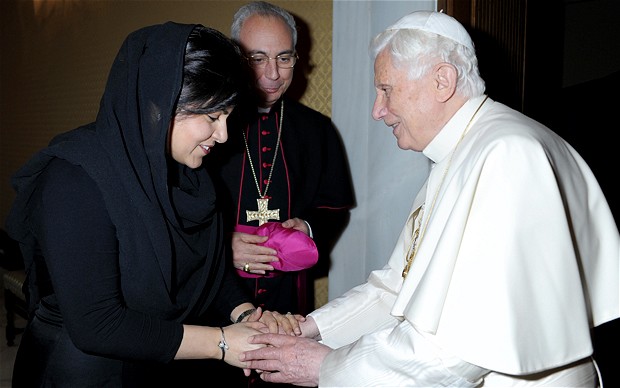
 |
Freethought & Rationalism ArchiveThe archives are read only. |
|
|
#291 | ||||
|
Contributor
Join Date: Mar 2006
Location: Falls Creek, Oz.
Posts: 11,192
|
The key word on the original versions of the "Nicaean Creed" is anathema. The document itself may be more appropriately described not as a creed, but as an oath, to Constantine's agenda, whatever that may be determined to be.
His agenda appears openly on the first imperial letters arising from the closing of the Nicaean doors, involving book-burning, damnatio memoriaea, immediate death (by beheading) if anyone was caught preserving "UNLAWFUL BOOKS". (Prohibition of temple use, enforced by the military in the cities since Constantine's military victory c.324 continued ...) IMO we need to get our head around the fact that these "unlawful books" were being dealt with by imperial military backed "search and destroy missions" as early as the year c.325 CE, as the first order of business for the new monotheistic heresiological regime. We know what the "lawful books" were: they were bound within the fifty Constantine Bibles. The time is long past to put down the pathological study of the canonical series of books, preserved in the basilicas of the monotheistic heresiologists, and turn our attention to the "unlawful books". Thankyou for mentioning Procopius's "Secret History". Do you not think that any of the supporters of Arius, the Arians or any other heretics tried to write secret histories, and were found out, and their books burnt, and themselves executed? The conditions in which Procopius found himself in are to be found also in the year c.325 CE. They were "new and strange" conditions. The historian Momigliano describes them as a miraculous revolution. Vlasis Rassias, Demolish Them! - Published in Greek, Athens 1994. Knowledge Burning by the 4th Century Christians Index Librorum Prohibitorum ("List of Prohibited Books") - The question of a Nicaean origin c.325 CE Quote:
Quote:
The canonical books are themselves heresiological. One is implied in the other. Quote:
|
||||
|
|
|
|
#292 |
|
Veteran Member
Join Date: Nov 2005
Location: United Kingdom
Posts: 3,619
|
http://www.youtube.com/watch?v=V_nNNIYTy9g
Big Mama Thornton Sings "Hound Dog" |
|
|
|
|
#293 | |
|
Contributor
Join Date: Mar 2006
Location: Falls Creek, Oz.
Posts: 11,192
|
Gallop; gallop; gallop - the highways were covered with galloping Draconian bishops.
knock; knock; knock - what sort of codices do you have in your book-shelf duvduv? (Or in your cellar?) Too bad if you read the wrong books duvduv. Time for a last look around at the night sky perhaps .... Truly a dark age, the 4th century. Quote:
|
|
|
|
|
|
#294 | |
|
Veteran Member
Join Date: Nov 2005
Location: United Kingdom
Posts: 3,619
|
 Quote:
http://www.telegraph.co.uk/news/worl...eets-Pope.html |
|
|
|
|
|
#295 |
|
Contributor
Join Date: Mar 2006
Location: Falls Creek, Oz.
Posts: 11,192
|
Heresiogical reciprocity is traditionally measured in gold tax exempt "gifts". One of the oldest CLAIMED Christian inscriptions is to be found in a Mosque. Trade agreements are important sources of revenue in the Nicaean and Meccan industries.
|
|
|
|
|
#296 | |
|
Veteran Member
Join Date: Oct 2004
Location: Bordeaux France
Posts: 2,796
|
Quote:
Secondly, there was also another discussion about Mary. Sometimes, she was called "theotokos", mother of god (theo- = god, -tokos = who brings a child into the world). That was a very good name for the christian mothers who considered (more or less) that Mary was an example to them. We still have this attitude in many places like Lourdes. But there were also some male grim theologians who could not accept that a woman, even Mary, could be the mother of god. Thirdly, but not less important, there were struggles about the material and political power, which were connected with these obscure discussions. |
|
|
|
|
|
#297 | |||
|
Contributor
Join Date: Mar 2006
Location: Falls Creek, Oz.
Posts: 11,192
|
Quote:
Quote:
It may (or may not) be interesting to compare this with the English translation of the Greek inscription to Apollonius of Tyana, as follows: Quote:
|
|||
|
|
|
|
#298 | |||
|
Veteran Member
Join Date: Nov 2011
Location: USA
Posts: 4,095
|
Thanks Mountainman, but since I don't know Greek I can't tell if there is any ambiguity in the Greek as it gets expressed in English. Does the Greek signify only "incarnate" and then "was made man" or is the English only one of a number alternatives? And why would either have to have both incarnate and became man when becoming man assumes incarnation and makes that word supefluous?
Quote:
|
|||
|
|
|
|
#299 | |
|
Contributor
Join Date: Mar 2006
Location: Falls Creek, Oz.
Posts: 11,192
|
Quote:
Perhaps Jesus was more of a creature rather than a man, like the Arians suggested? It may have been, perhaps that the Arians were being disrespectful of the Pontifex Maximus's Nicaean agenda to get a new god up and running? The "Creed" "Oath" of the attendees was to Constantine, the supreme commander of the Roman Empire. According to Robin Lane-Fox, signatures were collected from the attendees under military duress. It is generally admitted that the attendees only provided lip-service at this "council". |
|
|
|
|
|
#300 | ||
|
Veteran Member
Join Date: Nov 2011
Location: USA
Posts: 4,095
|
Anyone with a good knowledge of Greek have any thoughts about the issue of the terminology used specifically in the original Greek of the 325 Creed?
Quote:
|
||
|
|
| Thread Tools | Search this Thread |
|